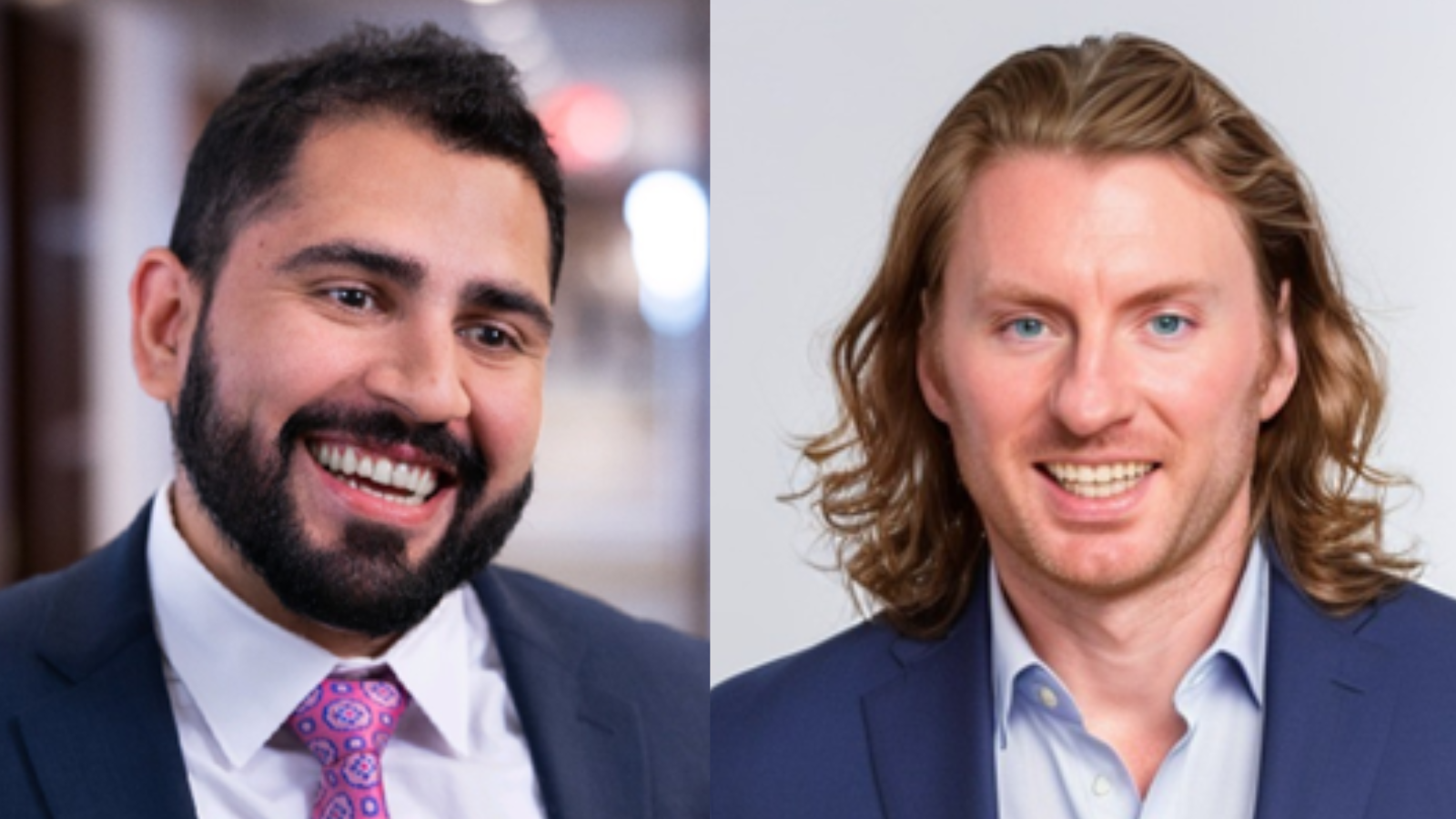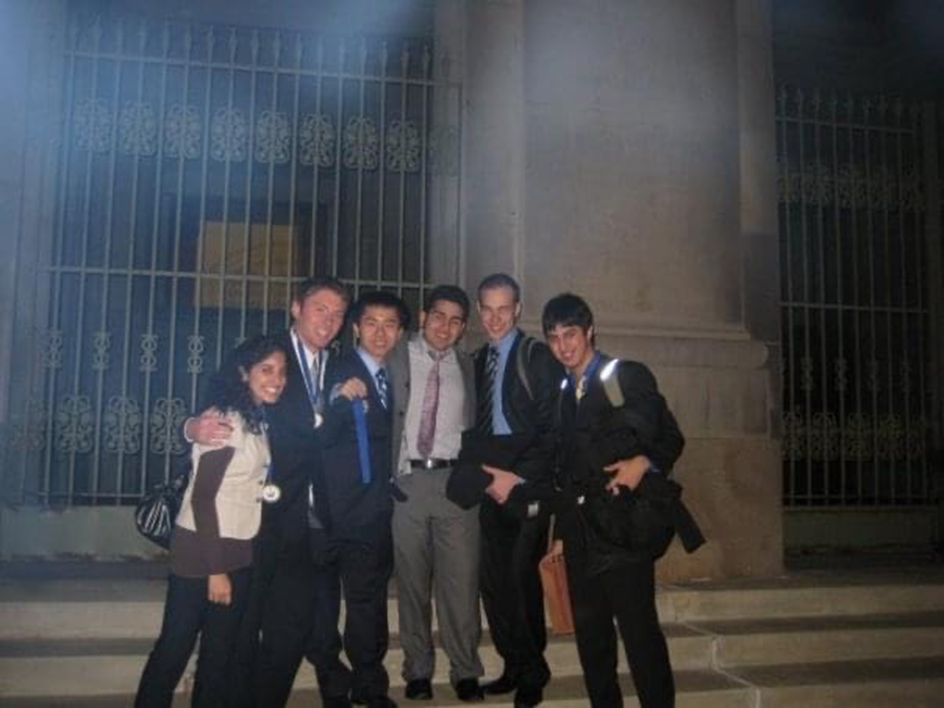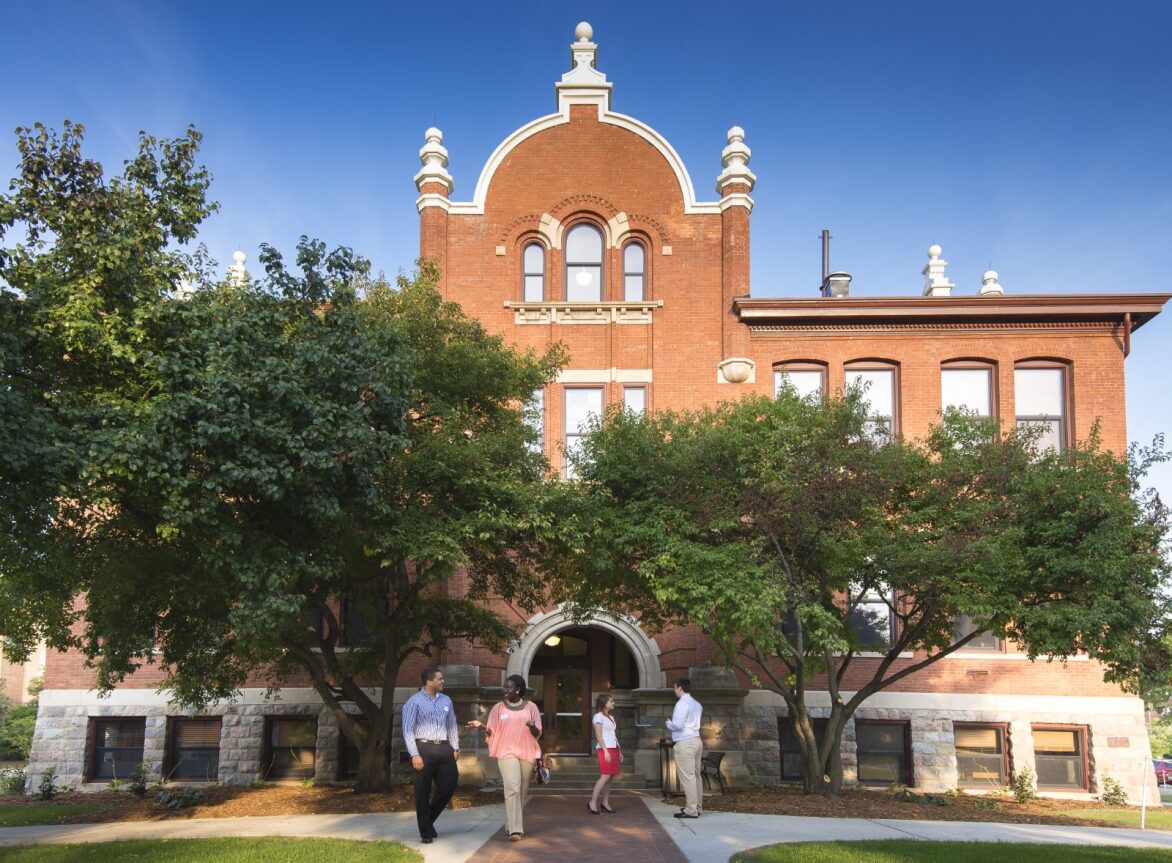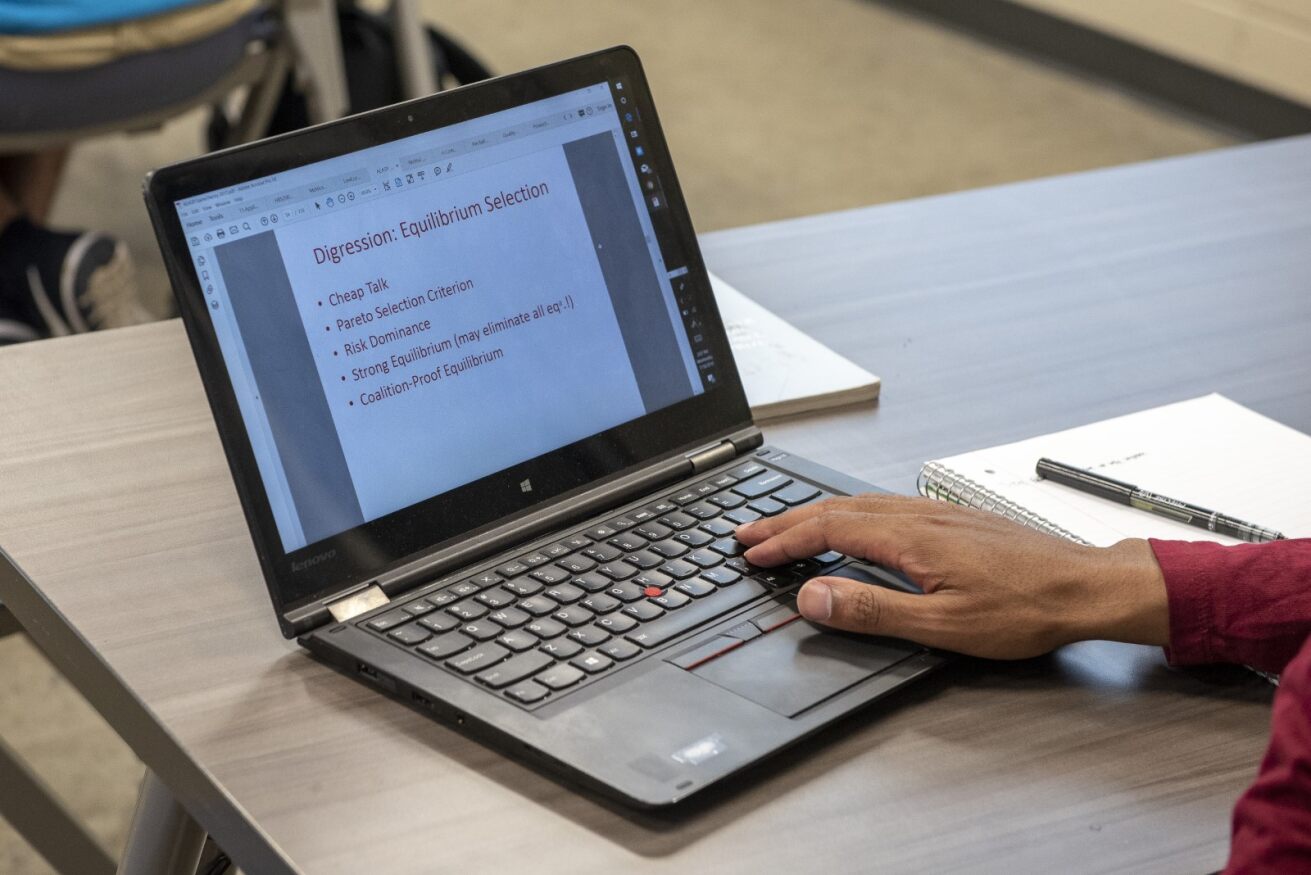
MSU Department of Economics alumni Elias Scheker Da Silva and Michael Watson established the Michael D. Watson and Elias Scheker Da Silva Undergraduate Student Success Award in Economics, an endowment that will reward exceptional undergraduate students in economics and support experiential learning opportunities. Scheker is a director and portfolio manager of Global Fixed Income at Wafra. Watson is the founder of Hedgineer.io, a platform created to build AI technology and data solutions for hedge funds, and he has served on the department’s alumni board for five years.
Both Scheker and Watson share deep convictions about their role in affecting change with their time and resources.
“I think if we have the ability to make things just a little bit easier for the generations that follow us, their probability of getting a lot further is greatly impacted,” Scheker said. “And ultimately, we hope that future Spartans will surpass us -- their predecessors.”
They also hope their gift will create momentum with other alumni and friends around investing into the department.
“When you can get people together that believe in something like the quality of a Michigan State University education and a world-class economic experience, and have them actively contribute time, resources, and experience into improving the quality of that product; this alongside professors, the board and alumni that are trying to actively make that better -- together, you can really create something that can be transformational,” Watson said.
During their time at MSU, Scheker and Watson met and formed a lasting friendship through the College Fed Challenge, an academic competition where teams from colleges and universities around the country research economic conditions and present their analysis and monetary policy recommendations at the Federal Reserve.

“That was an opportunity to meet people that were passionate about financial markets as well as competitive, adaptive and liked to engage in debates,” Watson reminisced. “You’re in this experience with them where you're scored and judged on the efficacy of your understanding of financial markets. That combination of shared action and competitive personalities created a unique opportunity to engage with and find talented people who have made me a better professional and who have also become my lifelong friends.”
In addition to the College Fed Challenge, Watson’s highlights from the Economics program were economics courses 420 and 421.
“I think that the econometrics program built around linear regression modeling is the most practical and applicable hard skill that I took away from the economics program,” he said.
He also feels shaped by his experiences in CSE 231, introduction to programming, that is required for the B.S. in Economics. He felt that his time at MSU prepared him for his career working with Citadel in various positions for over 8 years, including Head of Equities Engineering, Managing Director and Head of Enterprise Data, and his transition to founding Hegineer.io and his accompanying The Hedgineer podcast.
Scheker cites the same highlights from his time at MSU.
“Working with professors Vogelsang, Biddle and Doblas-Madrid - they all truly helped me to think about economic phenomena in a more structured manner,” Scheker reflected. “That helped me develop intuition and the skepticism necessary for evaluating and developing investment strategies. I think fundamentally, the reason why those courses and the Fed Challenge became so much more impactful was because we were in college during the great financial crisis. We had a real-world demonstration of the very things we were studying.”
Scheker came to MSU to study economics, inspired by his mother and also shaped by his life experiences.
“I chose economics because I recognized very early the impact those forces can have on individuals' lives,” Scheker shared. “I experienced it firsthand, growing up in the Dominican Republic during the early 2000s when I was in middle school and we had a currency crisis. We saw prices double overnight, and your standard of living just reduced so quickly because exchange rates had devalued instantaneously. I was heavily impacted by that and motivated to understand that. Luckily, my mother studied economics when she was in college, many moons ago and that also gave me an extra push.”
Coming to Michigan State, Scheker received a 4.0 throughout his study, but took a year off to gain residency so that he could pay in-state tuition.
“He was one of the top students in the program at the time, yet somebody as exceptional as him had to take off a semester to get in-state tuition just to pay the bills,” Watson said. “Look where he's at now. It's incredible; he's running one of the most successful fixed-income Shariah compliant books in the world. There are other people where the cards don't fall in a way that makes them get to that type of exceptional outcome. If there's another Eli out there, we have to help them.”
Reflecting on this time in Scheker’s life came up when he was catching up with Watson a few months ago, sparking their first discussion of starting an endowment for students.
“I was really looking at myself back then and thinking that I wish I had some help or even just recognition, because funding serves as a gentle reminder that you're on the right track when it is difficult to justify whether it will pay off. That’s part of the reason why we also decided to make an endowment. Not only does it continue giving and exists in perpetuity, but also because it gives us a degree of latitude in determining how the funds are eventually used. So that was important in order to fund the experimental learning, but also to reward students.”
Watson also reflected on being drawn to the study of economics from his experiences growing up and abroad.
“My mom worked my entire life at General Motors, and during 2008, they were going through bankruptcy and corporate restructuring. That was the year I was studying in Beijing, which is when they were having the Olympics, and there was a tribute to the emergence of China as a global economic power. I experienced first-hand that hyperbolic dichotomy between Lansing, which was at the time somewhat shrinking versus Beijing, which was growing incredibly fast with so much economic optimism. That experience in total was transformational and fundamental to my understanding of the way that the world works and how different markets interact with each other.”
Watson graduated from MSU in 2010, and Scheker in 2011; and they have remained life-long friends with each other and some of the other students they met through College Fed Challenge.

By: Katie Frey
They have both enjoyed success along their path, so they hope to help future Spartans and encourage others to do the same.
“We want to help you along the way to make it easier for you than it was for us,” Watson said. “And you start with a few people like us who then inspire people with $10, $100, or thousands, and that power transformation happens. It starts with somebody feeling as though they have agency and they can take ownership of the output. And that's what I think both of us have, particularly for this endowment, but for how we think about our lives and the world around it.”
“As a faculty member, it is incredibly gratifying to see both the remarkable successes of our alumni and their generosity in supporting current students,” said Steven Haider, Ph.D., professor and chair of the Department of Economics. “Their generous gift will allow the department to substantially improve our support for experiential learning.”
Inspired to give? You can also contribute to the Michael D. Watson and Elias Scheker Da Silva Undergraduate Student Success Award in Economics by visiting https://givingto.msu.edu/gift/?sid=17509.
Or to learn more about other ways you can support the department and future spartan economists, visit Giving | Michigan State University (msu.edu).

